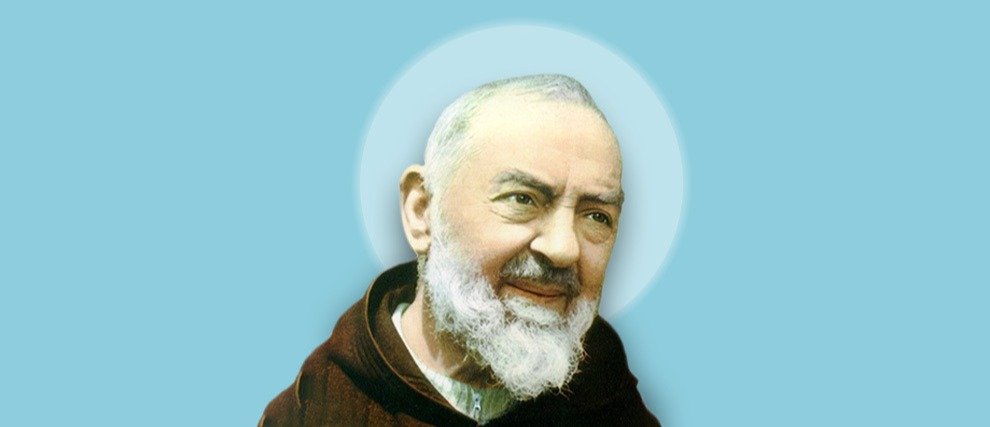The Lord's Prayer Explained
Jesus introduced The Lord's Prayer to his disciples as the way to pray. It is the basis of the relationship between Christians and God, the Father. With just a few sentences, it formulates the seven essential petitions for Christians. Understanding the meaning of each sentence is the key to saying it with all your heart. Below is an explanation of the ‘Our Father’, to help you become completely knowledgeable about the prayer of God’s Children.
The Meaning of The 'Our Father', explained Verse-by-verse
Our Father, who art in Heaven
We start by addressing God as “Our Father”. By doing so, we recognize ourselves as an assembly, a community, a Church. We are committing ourselves to our close ones, our brethren. The name “Father” highlights our filial relationship with God: we identify ourselves as the Children of God. It is a simple and direct word that also carries the meaning of our profound affection and love towards Him. The formula: “who art in Heaven” is an incentive to recognize that God is not a worldly Father, that His being is radically different from ours, and it allows us to praise His Greatness. According to Saint Thomas Aquinas, this expression lays the foundation for trust when starting the prayer: we put our trust in God’s strength, and in His constant presence in our heart.
Hallowed be Thy name
With this first petition we ask that God may be recognized for who He truly is: a Holy God. “Holy” means three things: it indicates unwavering strength, unworldliness and the freedom from sins, washed away by the Blood of Jesus.
Saint Thomas Aquinas associates each petition in The Lord's Prayer with one of The Seven Gifts of the Holy Spirit and with one blessing from the Beatitudes. This first petition is associated with The Gift of Fear of the Lord and the blessing : “Blessed are the poor in spirit, for theirs is the Kingdom of Heaven”.
Thy Kingdom come
The second petition is quite fervent. God has come to earth once, when he was manifested in the flesh as Jesus: the only man through whom God has fully reigned. When we say “Thy kingdom come”, we ask that God’s Kingdom may be extended to the entire world and that He may free our hearts from sin.
In his book, the Summa Theologica, Thomas Aquinas explains the interaction established between God and ourselves when saying the two first petitions of the ‘Our Father’: “Now our end is God towards Whom our affections tend in two ways: first, by our willing the glory of God, secondly, by willing to enjoy His glory. The first belongs to the love whereby we love God in Himself, while the second belongs to the love whereby we love ourselves in God. Wherefore the first petition is expressed thus: "Hallowed be Thy name," and the second thus: "Thy kingdom come," by which we ask to come to the glory of His kingdom.”.
This second petition reflects The Gift of Piety and the blessing: “Blessed are the meek, for they shall inherit the earth”.
Thy will be done on earth as it is in heaven
This third petition sets forth an act of abandonment of ourselves to God’s Will. Only He knows what is best for us, therefore, only He might guide us. By saying The Lord's Prayer, we accept to give Him our trust and to put our lives in His hands. When he suffered His Agony in the Garden of Gethsemane, Jesus said the words: “Father, if thou art willing, remove this cup from me; nevertheless not my will, but thine, be done.” (Luke 22:42).
We are called to fully accept God’s will, His Plan for our Salvation, and to follow it.
This petition is associated with The Gift of Knowledge and the following blessing: “Blessed are those who mourn, for they shall be comforted.”.
Give us this day our daily bread
Among all these divine petitions in the ‘Our Father’, we find this much simpler, and more humane one: a prayer for food. Asking for our daily bread means that we recognize our humble existence after having praised our powerful and celestial God. We ask the Lord for the essential Bread of Life: a nourishment to sustain our physical being, but also one that feeds our soul, our spirit. Christians also use the bread in reference to the Word of God, the Sacramental Bread: Jesus is the “living bread, which came down from heaven” (John 6:51). The bread serves as a symbol throughout the Gospels: from the Old Testament to the Last Supper, bread represents The Gift of God to mankind.
This part of the ‘Our Father’ corresponds to The Gift of Fortitude and to the blessing: “Blessed are they who hunger and thirst for righteousness, for they shall be satisfied”.
And forgive us our trespasses, as we forgive those who trespass against us
While the previous petitions related to the useful goods and virtues giving access to eternal life, from this part forward, the rest of the petitions will have to do with the obstacles to look out for while trying to achieve this goal. This sentence is a demand for forgiveness in two ways: we are asking God to forgive our sins and to acknowledge them, and for the ability to forgive others. God and Jesus are Love: without forgiveness, there is no love. Absolution is a fundamental step to take on our path to holiness.Human forgiveness stems from divine forgiveness: when you struggle to forgive, ask God for help!
This fifth petition is connected to The Gift of Counsel and to the blessing: “Blessed are the merciful, for they shall obtain mercy”
And lead us not into temptation
Temptation is the second obstacle impeding our progress to holiness. This petition is the only one in The Lord's Prayer that uses a negative. Recently some debates have arisen in the Vatican about the formulation of this petition: “lead us not into temptation” could imply that God, the ever well-meaning Lord, is the one that leads us into temptation. For that reason, in France, a new version of this petition has been enacted since December 3, 2017, that translates to : “And do not let us fall into temptation”.
What does “temptation” mean? To tempt means to entice or to put someone to the test. When a man is tempted, his virtue is put to the test to see whether or not he will choose to do good. He can also be enticed to do bad things: in that instance, resisting temptation is a sign of great virtue. Temptation is not a sin: to succumb to temptation is a sin.
Jesus himself was tempted, many times: the most well known example of this is the many temptations he was subjected to during his 40 days in the desert. Temptation is part of the path to Christ: you must fight it to defend your virtue. “Watch and pray that you may not enter into temptation. The spirit indeed is willing, but the flesh is weak” (Matthew 26:41). Jesus taught us the best way to fight temptation: prayer. Through prayer we can get closer to Christ, and in prayer we draw our strength to turn away from evil. Facing temptation is a struggle that paradoxically draws us closer to the Lord by turning prayer into an essential part of our life and by having us experience the same trials that Jesus had to experience. Prayer is not supposed to be a “remedy” against temptation, it helps give us courage to fight it, all the while opening ourselves up to the Lord and by trusting Him.
The sixth petition is associated with The Gift of Understanding and to the blessing: “Blessed are the pure in heart, for they shall see God”.
But deliver us from Evil
The last petition in the ‘Our Father’ is not without significance; this sentence is the high point of this beautiful prayer: “Deliver us from Evil” is asking God to ward off everything that could separate us from Him, it summarizes in one sentence all the struggle and the essence of Spiritual Battle. God is the only one who can deliver us from evil, with the help of Jesus who prayed for all of mankind: “I do not ask that you take them out of the world, but that you keep them from the evil one.” (John 17:15).
This final seventh petition evokes The Gift of Wisdom, and the Blessing: “Blessed are the peacemakers, for they shall be called sons of God”.
Pray to Our Father with Hozana
With Hozana, you can discover the mysteries of your filial bond to the Lord more thoroughly by invoking the intercession of the Saints! Praying through Saints helps you get closer to God : you can learn more about them by taking part in
, or say The Lord's Prayer every day with a community that reads and meditates on the daily Gospel!Want to learn how to say the our father in German, or other languages? Check out our guide on Hozana!

